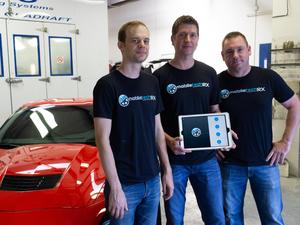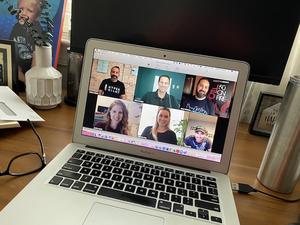
Back in February, just as Covid-19 cases were reaching the U.S., Bryan Burkhart was out traveling the coasts to raise a new round of funding for his facilities management software startup Worksmith.
He traveled to New York City, San Francisco and Seattle -- all of which became hotspots in the early days of the pandemic.
"In retrospect, I feel like I was a tornado chaser, chasing Covid," he said recently.
But that was just the beginning.
Worksmith, founded in 2015, was focused exclusively on providing its software subscriptions to retail stores, which use the software and marketplace to get matched to high-rated vendors for a wide variety of services, including cleaning and maintenance. For store owners, it charges a software subscription and setup fee to access its one-stop-shop for facility maintenance services nationwide. For vendors, Worksmith provides exposure to new clients and it captures the difference between their normal prices and their wholesale rates.
After a couple years of steady growth, in mid-March retail shops mostly closed their doors as U.S. cities tried to slow the spread of coronavirus.
Thankfully, Burkhart said, Worksmith was still able to close its $3.8 million funding round, led by prior investors, including Trunk Club and Bonobos founder Brian Spaly and Tecovas founder Paul Hedrick.
But within two weeks of the funding, he called an emergency board meeting, a companywide meeting and set-up individual calls to announce Worksmith would be laying off most of its operations team, which helped connect retailers with maintenance vendors when the platform couldn't automatically make a match. It essentially halved the startup from its peak of about 60 employees to around 30 that it has today.
“It was heart-wrenching," he said, recalling several difficult conversations.
But it also became an opportunity.
While the startup saw its transactions plummet, its engineering team sprinted to complete a laundry list of projects to launch features they had previously figured would be slowly built out over the months and years ahead. It also switched its focus away from retailers to find clients in essential businesses, including physical therapy, veterinarian offices and even auto dealers who needed to double down on cleaning and let customers and employees know they were on top of it.
The overhaul meant rewriting copy on its website to show it could help more than just retailers, as well as emphasizing disinfectant services and heating and air conditioning maintenance that are viewed as crucial to reducing the transmission of the virus.
“The spring was a white knuckled time for us," he said.
Burkhart said that expanding its focus from retail and expediting software projects has helped the startup get back to pre-pandemic sales levels. He declined to share specifics, but he said Worksmith had been doubling revenue year-over-year before the pandemic and expects to be on that growth pace again next year.
“I think we’ll look back and say, for the business, because of the forcing function that a pandemic brings, it might ultimately end up being the best thing that ever happened to us," he said.







